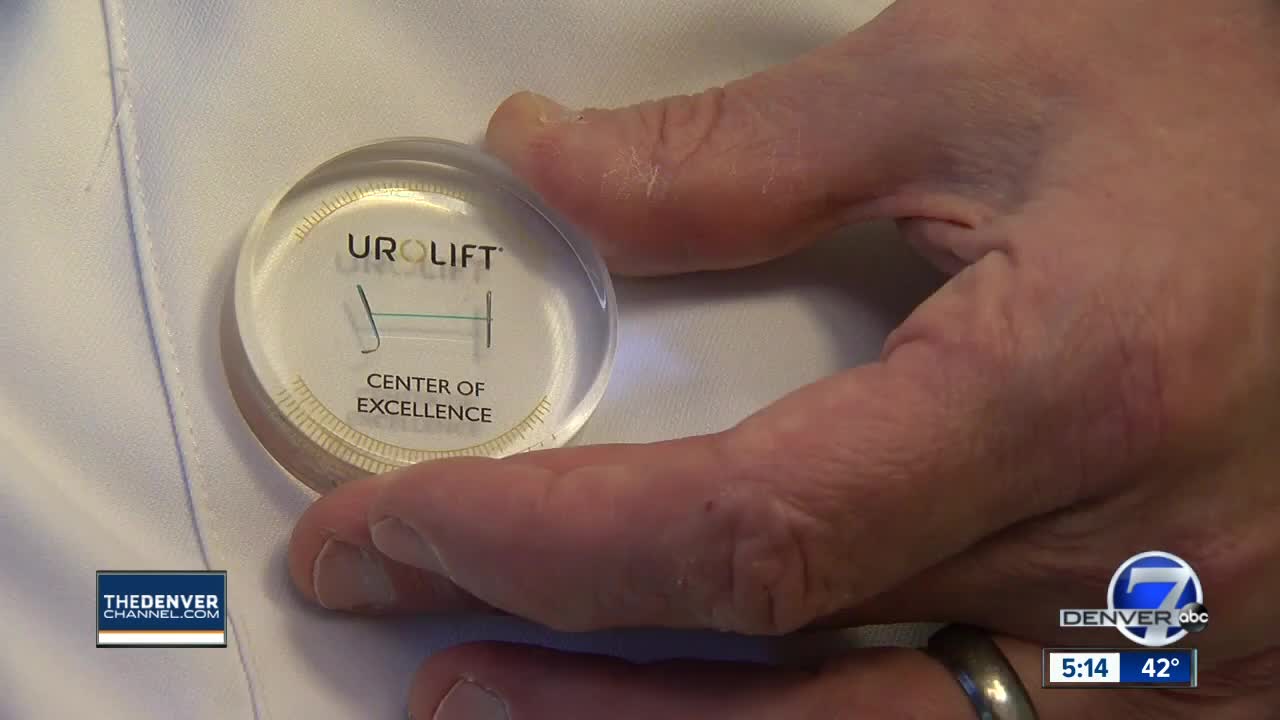LAFAYETTE, Colo. — The quest to provide non-pharmaceutical, non-surgical procedures to patients who battle common medical issues is becoming a near constant for medical providers. At Colorado Urology, one of those solutions is gaining popularity in treating BPH, commonly known as an enlarged prostate.
“As our prostates enlarge, it may cause problems with out bladder function but not always,” urologist Dr. John Kefer, of Colorado Urology, told Denver7.
Prostate enlargement is a natural occurrence, according to Dr. Kefer. It becomes a medical issue when the size or shape of the organ impacts bladder function. That is common, with nearly 40 million American men dealing with BPH, also according to Dr. Kefer.
Many men that are interested in treatment tend to prefer a non-pharmaceutical and non-surgical option. That’s where the procedure called “UroLift” comes in. The company’s website described the procedure: “(UroLift) lifts and holds the enlarged prostate tissue so it no longer blocks the urethra.”
“We use little sutures to tent the prostate tissue out of the way and offer a better channel for that bladder to empty,” Dr. Kefer explained.
Dr. Kefer tells Denver7 that because the UroLift procedure is not a prescription medication and is nonsurgical, more and more patients have been interested in the option.
“Because the outcomes are as good (as alternatives) and it’s an easier procedure, lower cost, more men are choosing this,” the urologist said.
The procedure itself is outpatient, with many patients returning home on the same day. One of those patients is former state representative Glenn Vaad.
“We did it, went through the procedure, I had full confidence in him, and worked it well,” he told Denver7.
Vaad’s procedure was a year ago.
“The benefit I’ve gotten from this, other than the obvious physical things, is I don’t think about it anymore. I don’t have to be worried about that or plan my business or my trips around that,” he said.
Not all patients who suffer from an enlarged prostate are eligible for the procedure. Dr. Kefer said patients should consult their physician about what the best course of treatment is.

